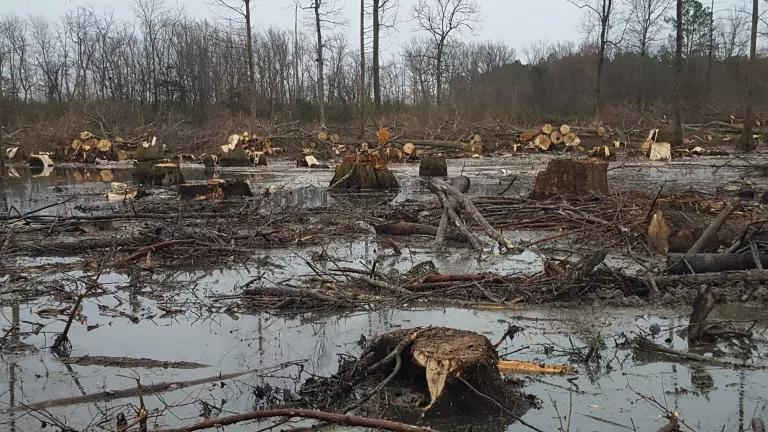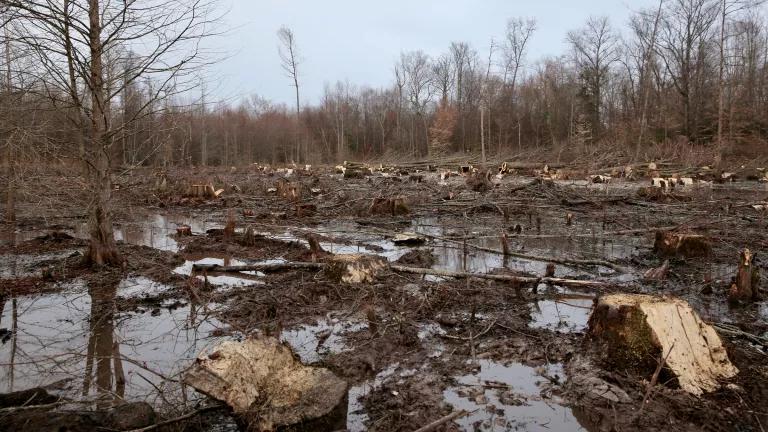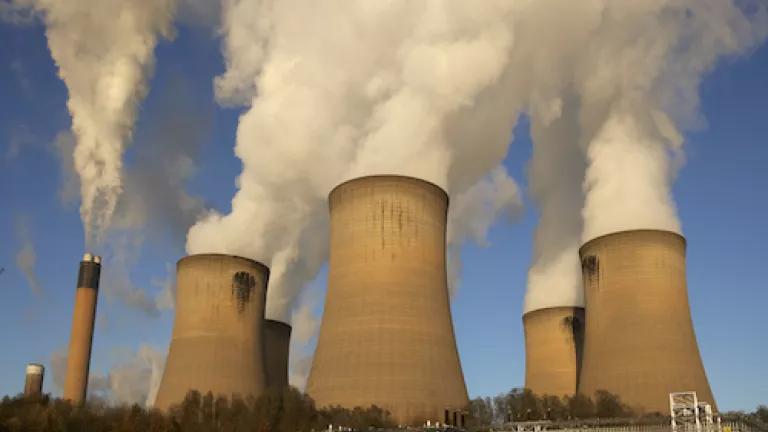
A section of mature forest in North Carolina that was clearcut for transport to Enviva Pellets Southampton, a facility that produces wood pellets for export to Europe
Dogwood Alliance
Last week I wrote about UK Government plans to extend biomass subsidies for burning trees, which would put US and Canadian forests at severe risk after 2027 and well into the 2030s.
Only days later, one of the Government's official watchdog bodies has released its findings concluding that there would be major risks associated with doing this. The National Audit Office concludes that there are three major risks associated with the UK's burning of wood in power stations.
The Government doesn't even know whether biomass is sustainable
After reviewing the procedures in place, the National Audit Office says that they don't think current procedures are robust enough for the Government to be sure that biomass burned is meeting its own sustainability requirements. This means that billions of pounds of public money—£6.5 billion of which have gone to Drax power station—could have been used to pay for environmental harm.
We have been worried for years that evidence clearly shows the environmental harm being done by bioenergy and UK subsidies for it. But a Government watchdog reaching the same conclusion is a welcome landmark.
The National Audit Office says that an evaluation of the existing requirements, and whether they are effective, is needed. It also says that an assessment of the environmental impact of extending subsidies beyond 2027 is needed. The consultation on extending these subsidies has been issued without any such assessment. There's a strong case for the Government to withdraw this consultation and conduct such an assessment before even considering paying billions more to bioenergy companies.
The supply of biomass is limited
The National Audit Office highlights that there is a limited supply of biomass and multiple possible uses of it across the economy. Increasing the production of biomass in the UK will be difficult because it would require huge areas of land—which are also needed for nature, for food production, and other uses. But we know all too well the environmental impacts of imported biomass. Even if UK production of biomass increased significantly, there would still be a need for some imports.
Recent analysis by Cut Carbon Not Forests shows that relying on bioenergy will undermine the UK's energy security because it relies on imports of wood, which are likely to rise in price, and requires huge areas of land.
The Government is relying too much on BECCS to tackle climate change
The main reason the Government is considering extending biomass subsidies is to give the industry more time to develop carbon capture technology. But there's no guarantee that this technology will ever develop or capture carbon at the scale hoped for. Even if it does, the impact on forests and their carbon absorption (which is completely ignored in the figures) means it doesn't deliver true negative emissions.
The National Audit Office says that the Government should review progress towards this carbon capture technology every year, and if it isn't looking likely then consider other ways the UK can get to net zero. Recent research by WWF UK and RSPB shows that getting to net zero doesn't mean a huge dependence on negative emissions technologies like BECCS.
The Government should go further than this—if these annual reviews show bioenergy with carbon capture and storage remains a distant make-believe technology, any subsidies extension the Government decides to offer should be cancelled. Of course, our view is that no new subsidies should be offered at all - scientists, environmental experts, UK parliamentary committees, MPs, local communities whose health has been harmed have all been ringing the alarm for years. Now we've been joined by an official government watchdog saying that UK biomass is fundamentally flawed.




